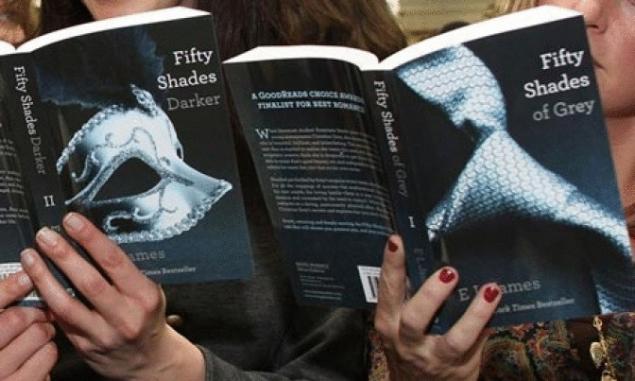154
The impact of popular non-fiction literature on the example of the novel Fifty Shades of Grey

Psychologists from the University of Michigan studied the impact of popular non-fiction literature with scenes of violence against women on the health of readers. The study was conducted on the example of the popular erotic novel Fifty Shades of Grey.
Women who have read 50 Shades of Grey are more likely than others to have an eating disorder (bulimia or anorexia), as well as rude partners, according to a new study by psychologists at Michigan State University. In addition, women who have read the entire trilogy of British writer E.L. James are more likely to suffer from alcoholism and have many sexual partners.
“All of these health risks are associated with this kind of unhealthy relationship involving the novel’s protagonist, Anastasia,” said lead author Amy Bonomi. “While we don’t know for sure whether women became ‘bad’ before or after reading the book, it’s a potential threat,” she said.

Professor Amy Bonomi/©G.L. Kohuth
Psychologists in their work report that if a woman had any eating disorders before reading the novel, then there is a high probability of aggravation of this trauma after reading the book.
This is one of the first studies to explore the relationship between contemporary literature and scenes of violence against women and the behavior and health of female readers of such novels. The study was published in the Journal of Women.
The researchers made their conclusions based on the results of a study in which 650 women aged 18 to 24 years took part. It turned out that readers of this bestseller, compared with those who did not read the novel, were 25% more likely to have rude partners, 75% more likely to have an eating disorder, 65% more likely to have alcoholism and 63% more women had five or more sexual partners.
Professor Amy Bonomi does not propose to ban the reading of this book. "It's just that women need to understand that this kind of behavior can lead to violence against them," Bonomi adds. Psychologists recommend cultivating a critical attitude to the content of books, films and TV programs, without transferring the actions of the characters into their lives.
We understand that the portrayal of violence against women is not in itself a terrible thing; on the contrary, if it is done to shed light on existing problems, it is for the better. Problems arise when it is portrayed as something normal rather than something to be fought against.
- Amy Bonomi, lead author of the study
Source: naked-science.ru
Source: /users/1077






















